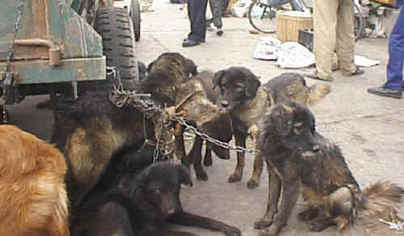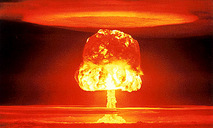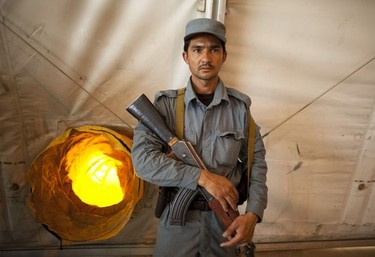BEIJING — The mutts were destined for the dinner table — all 520 of them crammed onto a truck hurtling down a Beijing highway toward awaiting restaurants in northeastern China.
Then, fate intervened in the form of a passing driver, an animal lover who spotted the truck and angrily forced it off the road.
From there, things began spiraling out of control. News of the confrontation hit the Chinese blogosphere, sending more than 200 animal activists flocking immediately to the highway. Traffic on the road slowed to a standstill. Dozens of police officers were called in. Animal activists, however, kept arriving with reinforcements, carrying water, dog food, even trained veterinarians for a siege that lasted 15 hours.
Weeks later, those who were there still talk in disbelief at how quickly things escalated. But in many ways, it was a battle that has been brewing for years between the rural and the urbanites, the poor and the rich — between China’s dog eaters and its growing number of dog lovers.
The standoff last month has sparked the widest-ranging discussions to date in China over animal rights. Pictures and videos from the incident have spawned endless arguments on e-mail groups and blogs, Web polls and news stories delving into each side’s points.
And the debate is the latest sign of China’s rapidly changing mores and culture. For centuries, dog meat has been coveted for its fragrant and unique flavor; it is an especially popular dish in the winter, when it is believed to keep you warm. But pet ownership has skyrocketed in recent years as China’s booming economy produced a burgeoning middle class with both money and time for four-legged friends. And with the new pet stores, a once powerless animal rights movement is slowly gaining traction.
The highway incident has been its biggest success thus far. The mob of dog lovers finally won the standoff by pooling together more than $17,000 to pay off the truck driver. But their victory was quickly eclipsed when they soon realized they had no idea where to house the hundreds of loud, wild and decidedly not housebroken canines.
Even after combining forces, the handful of animal rights groups in the region had trouble handling the overflow from the truck. Most of the dogs they unloaded were strays, and many were dehydrated, malnourished or suffering from deadly viruses. Several have died since the rescue. Dozens this week remained under treatment at animal hospitals around Beijing.
“We are a small organization. We haven’t even tried to pay the animal hospital bills yet,” said Wang Qi, 32, who works at the China Small Animal Protection Association. “There was so much enthusiasm when the dogs were first rescued, but our worry is, what happens now?”
The trucker, Hao Xiaomao, has not fared any better in the aftermath. Reached by phone in his home province of Henan, Hao said he lost a small fortune, more than $3,000, after being forced into the deal. Worst of all, because he failed to deliver, no one has been willing to hire him since.
“I still don’t understand what was immoral about my shipment. People also eat cow and sheep. What’s the difference?” he asked. Of the activists, he said, “They were just a group of rich bullies who own pets and have nothing better to do.”
Several others have also raised the specter of class warfare — a common meme in modern China amid the widening gap between rich and poor. In online debates, many have noted the symbolic nature of the confrontation: a working trucker forced off the road by a black Mercedes-Benz whose driver was on his way to a resort hotel with his girlfriend.
The issue comes with historical baggage as well, notes Jiang Jinsong, a philosophy professor at Tsinghua University. “During the Cultural Revolution, having a pet was seen as a capitalist activity. Only the rich and arrogant had dogs and allowed them to bite poor people,” he said. “So there’s this implication that if you treated pets well, you will treat those who are weaker badly.”
At least one netizen has taken this argument to the extreme. Enraged by activists fighting for animals while ignoring the plight of so many rural, impoverished Chinese, a man in Guangzhou posted threats online to kill a dog a day until animal activists donate the money they raised to peasants living in poverty instead of to dogs.
“I felt I had to do something to represent the grass-roots people,” said Zhu Guangbing, 35, who recently plastered his threat on Twitterlike microblogs in China. “I grew up in a poor village. We raised one dog to watch the door and one to be killed in the Lunar New Year because we were too poor to buy pork. I don’t understand what’s wrong with that.”
Within days, Zhu found his name, cellphone number, office number, and even his parents’ number posted online.
“My parents got calls condemning them for raising a son like me,” he said, having logged more than 200 threats so far. “One elementary school teacher even called me and had her students insult me over the phone one by one.”
But dog activists have defended their fervor as a necessity. China does not have any laws against cruelty to animals, and by some estimates, as many as 10 million dogs — some vagrant, others stolen pets — are sold for consumption each year and are often kept under horrible conditions.
“People are saying it’s a silly thing protecting animals,” said Wang, the activist. “But it is a question of civilization.
“By teaching people in this country to love little animals, maybe we can help them to love their fellow human beings better.”
But Zhu scoffed at that notion. Last week, he was forced to quit his job after his company began receiving threatening phone calls as well.
“I didn’t even intend to kill dogs. I was just making a point,” he said. “The animal activists claim to have the moral high ground, but look at what they did to me. Can they really say they have love at the front of their heart?”
www.washingtonpost.com



 RSS Feed
RSS Feed